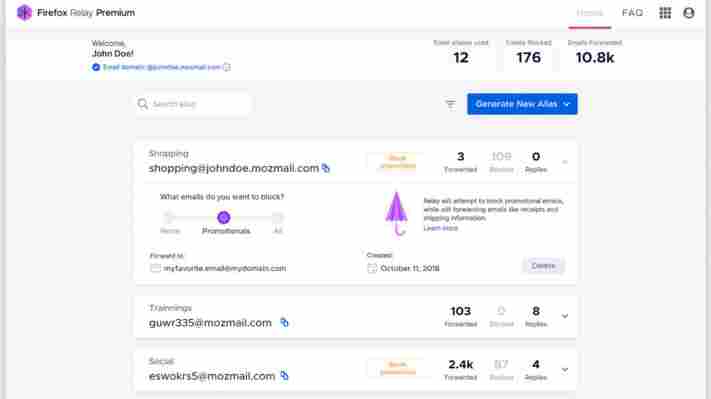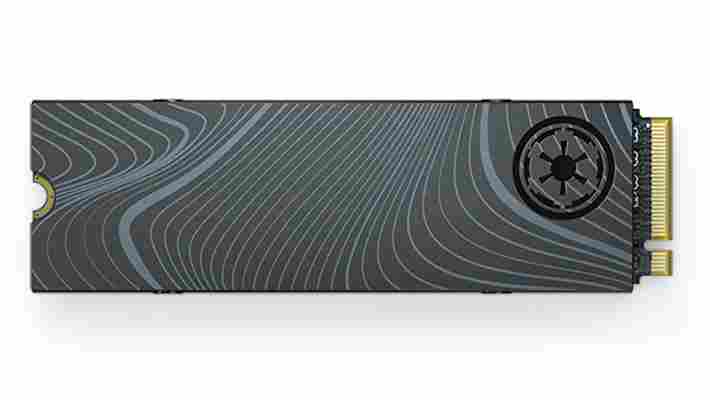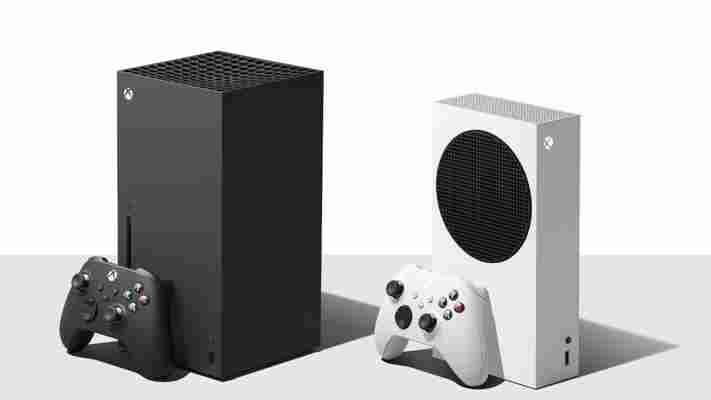Mozilla has launched an update for its email privacy service, Firefox Relay, that addresses common complaints and extends the tool to a wider audience.
With the latest version of Firefox Relay, the attachment file size limit has been upped from 150KB to 10MB, which means users won’t run into trouble when receiving emails that contain documents, concert tickets and the like. Previously, these attachments just wouldn’t make it to the inbox.
In a blog post , Mozilla also revealed the Firefox Relay extension is now available via Google Chrome too, where previously only Firefox users had access (and those willing to use the website). Given Chrome is by far the most widely used web browser , with more than 60% market share , the move will open up the service to millions more people.
Lastly, Mozilla announced new features that allow Firefox Relay users to filter out promotional emails for a predefined period, but this functionality is available to paying subscribers only.

Firefox Relay update
Re-launched late last year, Firefox Relay gives people a way to obscure their personal email address when interacting with vendors and websites they may not trust. The service allows users to create multiple email aliases (up to five for free), which route messages through to their original inbox without exposing their identity.
To explain the utility of the email relay service, Mozilla draws a comparison between a person’s email address and personal phone number.
“In real life you have a phone number where family and friends can call and reach out to you directly. You likely have it memorized by heart and it’s something you’ve had for years. In your online life your email address is like your phone number, it’s a personal and unique identifier,” wrote Mozilla, in a separate blog post .
“Your email address has become the way we access almost every website, app, newsletter, and hundreds of other interactions we have online every single day. That means your email address is in the hands of hundreds, if not thousands, of third parties. As you think more about your email address and the places it’s being used, Firefox Relay can help protect and limit where it’s being shared.”
The email relay tool is part of a growing suite of privacy-focused products from Mozilla, which has taken the decision to deemphasize its famous browser as it seeks to establish new revenue streams that are independent from its ability to compete with the likes of Chrome, Safari and Edge.
Alongside Firefox Relay, the organization now offers a VPN service, breach monitoring tool, news aggregator and anti-tracking extension.
The latest update for Relay can be seen as an attempt to bolster both quality and scope of the Mozilla suite, as competitors such as Brave, Proton and DuckDuckGo begin to expand their own arsenals of privacy services .
Seagate’s new SSDs are perfect for Star Wars bounty hunters everywhere
Seagate has launched new versions of a trio of FireCuda drives which are made to look like Beskar ingots, which fans of The Mandalorian will know is the metal that the eponymous hero’s armor is forged from.
These special edition drives come in three different flavors: a portable hard drive (pictured above), plus a SATA SSD and an M.2 SSD (see below). The external hard drive is a 2TB model, and the SATA SSD is available in both 1TB and 2TB capacities, with the M.2 version (PCIe 4.0) coming in 500GB and 1TB options.
The HDD comes with a Beskar ingot design and Imperial stamp, plus you get “Mandalorian-inspired blue LED lighting” along the bottom edge (which is customizable to any color you prefer, it’s an RGB strip). This is a lightweight USB 3.2 Gen 1 drive and it comes with a 5-year warranty.
The SSDs use the same external design, but minus the lighting, and also benefit from a 5-year warranty.
You’ll pay $100 (or £100 in the UK) for the external hard drive, with the SATA SSD starting from $168 (we’ve seen it from £153 in the UK), and the M.2 flavor starts from the same $168 (but slightly cheaper from what we’ve found online in the UK at £138).

Analysis: The drives underneath that Beskar armor
As PC Gamer , which reported on this launch, points out, the M.2 SSD is actually the FireCuda 530 , which boasts fast read and write speeds of up to 7,300MB/s and 6,000MB/s respectively for the larger 1TB model (note it’s also a very nippy viable option for the PS5, and is equipped with a heatsink). The FireCuda 530 is a very well thought of solid-state drive, too, so you’re getting not just a good-looking piece of hardware, but a fast-performing and reliable one.
The 2.5-inch SATA SSD is a Seagate FireCuda 120, by the way, with decent read and write speeds of 560MB/s and 540MB/s. Again, this is a well-reviewed model, so purchasers are getting a quality component.
As for the external HDD, that’s simply a FireCuda Gaming Hard Drive (which comes equipped with the RGB LED lighting strip itself).
Keystone could be the codename of the next Xbox
A dataminer has uncovered evidence that Microsoft is working on a secret product that may be the next iteration of the Xbox. The Xbox Series X and S may have only been out for a little more than a year, but Microsoft is likely already working hard on their successor.
Dataminer Tero Alhonen shared a list of Xbox products on Twitter, highlighting one entry in particular: “PRODUCT_XBOX_KEYSTONE.”
Alhonen doesn’t say where he found the product listing or offer any comment on what he suspects Keystone refers to. However, the two entries above Keystone may offer a clue: Durango and Scarlett were the codenames for the Xbox One and the current generation of Xbox consoles, respectively.
You should contain your excitement, though. Other console codenames, Anaconda and Lockhart, the names for the Xbox Series X and Xbox Series S , are both missing from the list.

Without any more to go on, it’s difficult to say what Keystone is; a mid-generation upgrade, maybe, like the Xbox One X, or the codename for the next generation of Xbox consoles - that would explain the absence of Anaconda and Lockhart, at least. Scarlett was the name for the family of consoles, not the consoles themselves. Microsoft likely is already working on its next console iterations, even though the Xbox Series X/S are little over a year old. Hardware development is a long process, so while we may not see a new console for several years, that’s not to say Microsoft hasn’t started developing it.
Head of Xbox Phil Spencer hasn’t ruled out a mid-generation upgrade either, though, on the topic of an Xbox Series X redesign , he said, “There’s nothing that’s going to come out next year that’s going to make you feel like, oh, I should have waited.”
There’s also good reason to believe that Keystone isn’t a traditional console; it could be the much-rumored Xbox Streaming Stick . With Microsoft’s significant investment in Xbox Game Pass and Xbox Cloud Gaming, a dongle you can plug into your television and use to stream games is highly likely to be in development. Liz Hamren, CVP of gaming experiences & platforms at Xbox, revealed Microsoft is “developing standalone streaming devices that you can plug into a TV or monitor, so if you have a strong internet connection, you can stream your Xbox experience.”
Of course, while Keystone is an Xbox product, it may also be the codename for something that isn’t a physical device. It could be a new service Microsoft has planned.
That is all to say, we would advise you to temper your expectations until more information becomes available.